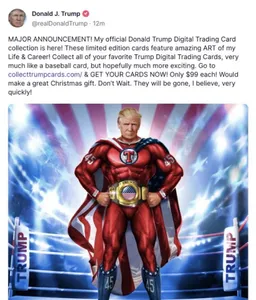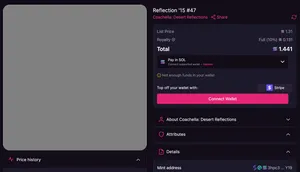In August, the popular messaging app Telegram started repossessing some desirable usernames that were already being used. Shortly afterwards, Telegram founder Pavel Durov explained that he had been impressed by a quarter-million-dollar domain sale by the TON blockchain domain project, and wrote, "Let's see if we can add a little bit of Web 3.0 to Telegram in the coming weeks."Telegram later introduced some of the repossessed usernames for sale as pricey NFTs on their new "collectible usernames" market, dubbed Fragment. Although Durov had claimed that "70% of all Telegram usernames had been reserved in inactive channels by cybersquatters from Iran", and that the only usernames that were "withdrawn" had been out of use, users were given no warning or option to keep their names.
On October 27, Durov announced that "in a few days, we will also introduce the ability for users to sell their existing usernames on Fragment" — unwelcome news for those whose usernames were sold out from under them by Telegram.
Some of the usernames that have sold on the marketplace include brand names like Facebook (which sold for 60,000 TON, or ~$94,200), FIFA (sold for 600,000 TON, or ~$972,000), Amazon (sold for 262,500 TON, or ~$425,000), and Meta (sold for 404,000 TON, or ~$723,000). There is no indication the buyers are necessarily associated with the brands in question. Furthermore, the username marketplace is not available in the USA.









